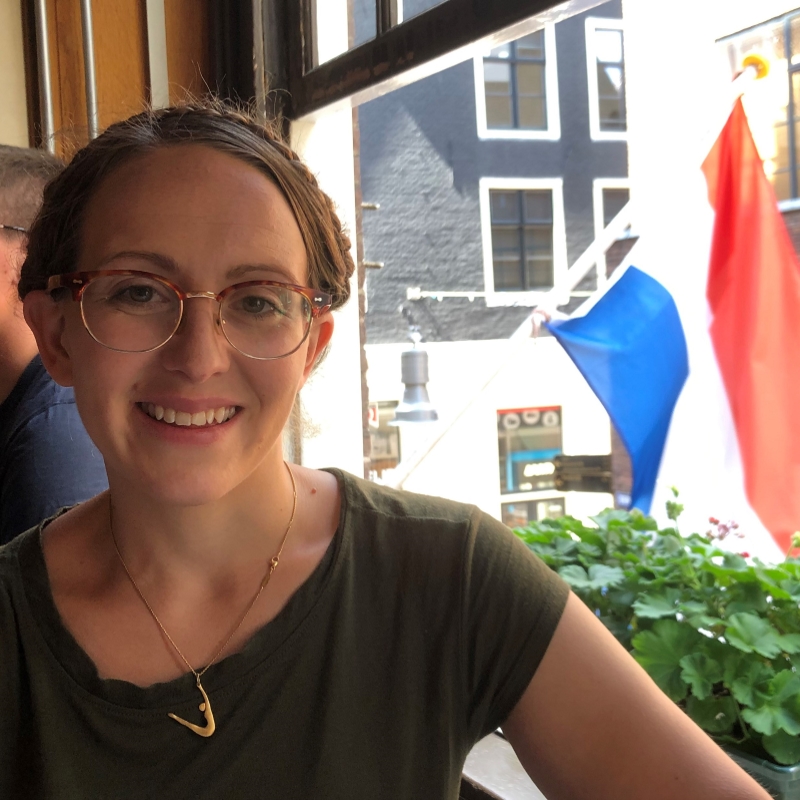The Lisa Jardine Grant Scheme, allowing early career scholars to explore history of science collections, is now open to applications for research projects from July 2024 to June 2025, as Virginia Mills reports.
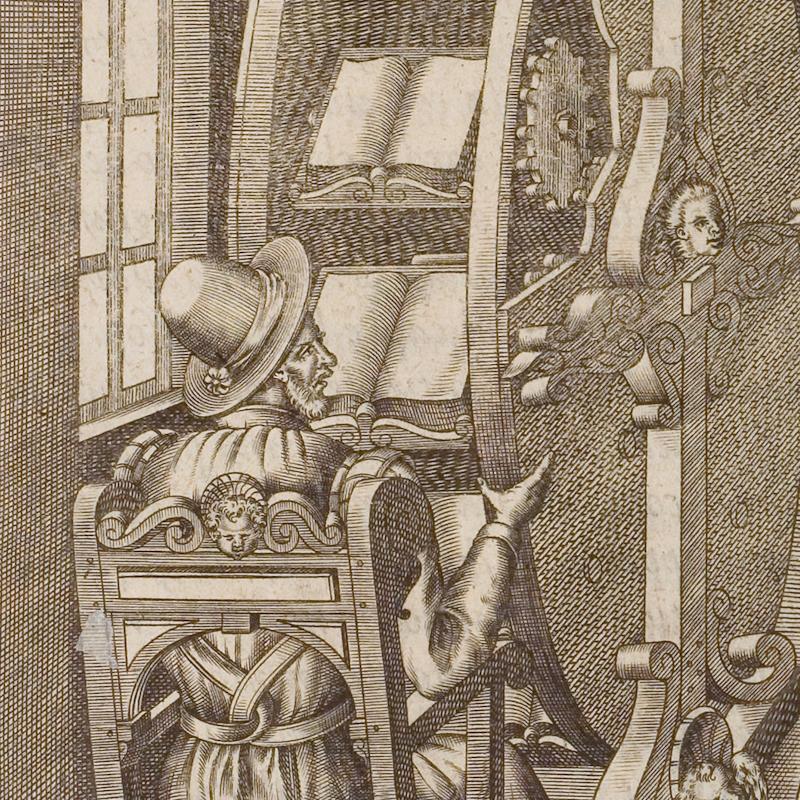
The Royal Society’s Lisa Jardine Grant Scheme has just reopened to applications. In the hope of encouraging budding researchers to apply, I wanted to share some past examples of successful projects supported by the grant.
If you’re an early career academic in the history of science or related interdisciplinary studies, the scheme may be able to provide support to enable you to travel, furthering your research and career development. You can consider applying for funds to access primary research materials in libraries, archives and museums in the UK and internationally, or to attend conferences or training events. We’re currently accepting applications via our online grant portal for research to take place from July this year to June 2025.
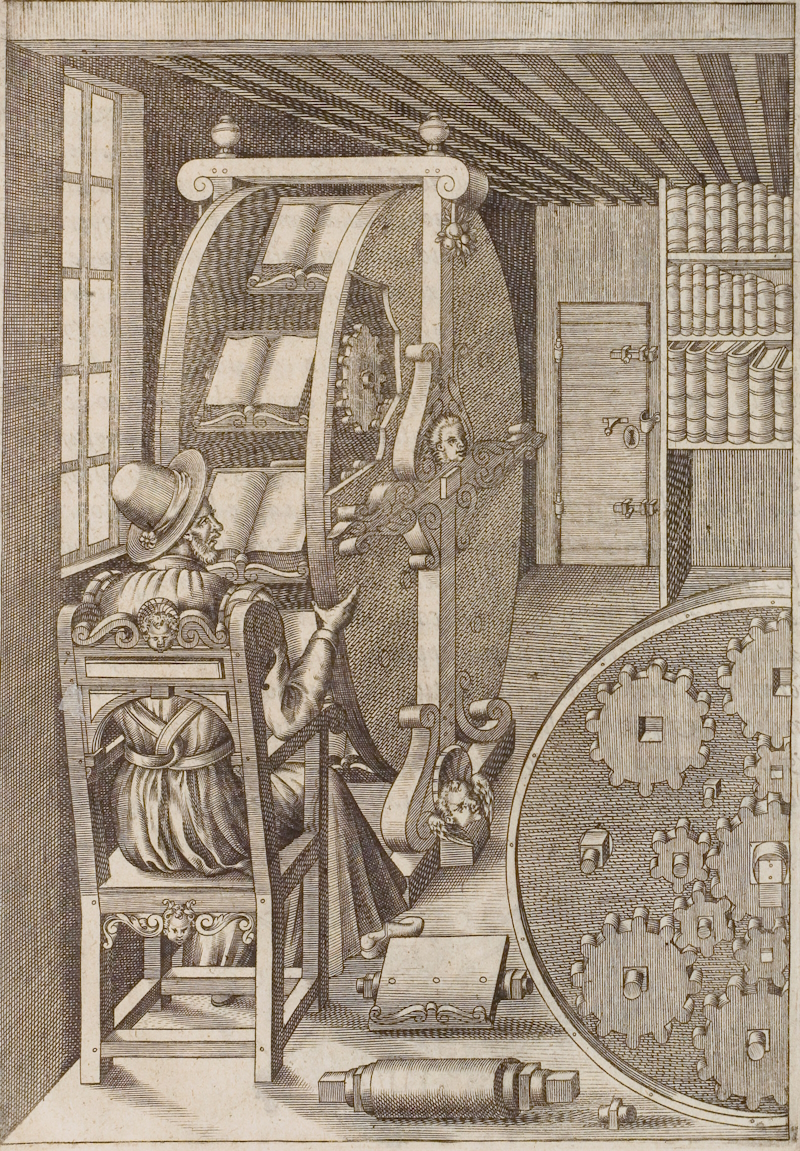 Book wheel allowing the consultation of numerous books and manuscripts, from Agostino Ramelli's La diverse et artificiose machine, 1588 (RCN 60203)
Book wheel allowing the consultation of numerous books and manuscripts, from Agostino Ramelli's La diverse et artificiose machine, 1588 (RCN 60203)
The scheme welcomes applications from researchers based in UK universities and cultural institutions, as well as those from international organisations. Note that applicants not based in the UK must incorporate an element of research in the Royal Society’s own collections, but UK academics can travel to any destination.
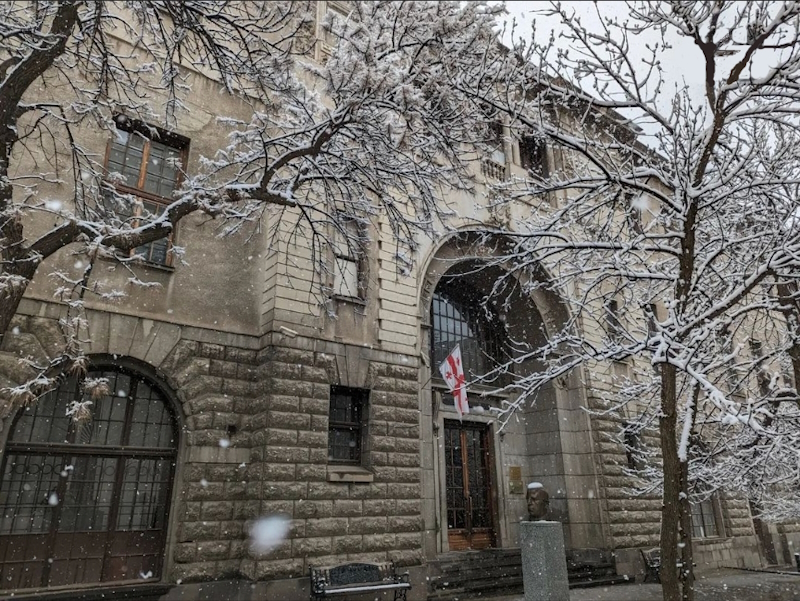 Tbilisi Archive, Georgia. Image courtesy of Lisa Jardine grant recipient Amanda Williams, 2022
Tbilisi Archive, Georgia. Image courtesy of Lisa Jardine grant recipient Amanda Williams, 2022
In previous rounds of the grant, travel destinations have ranged from Norway for the investigation of auroral science records to Kyiv, Vilnius and Tbilisi to identify Soviet state material on maternity policies. Other awardees have visited New York to consult historic morgue records for the anonymous dead, and Belgium to attend and present at curatorial workshops on decolonialisation, restitution and the responsible use of medical records.
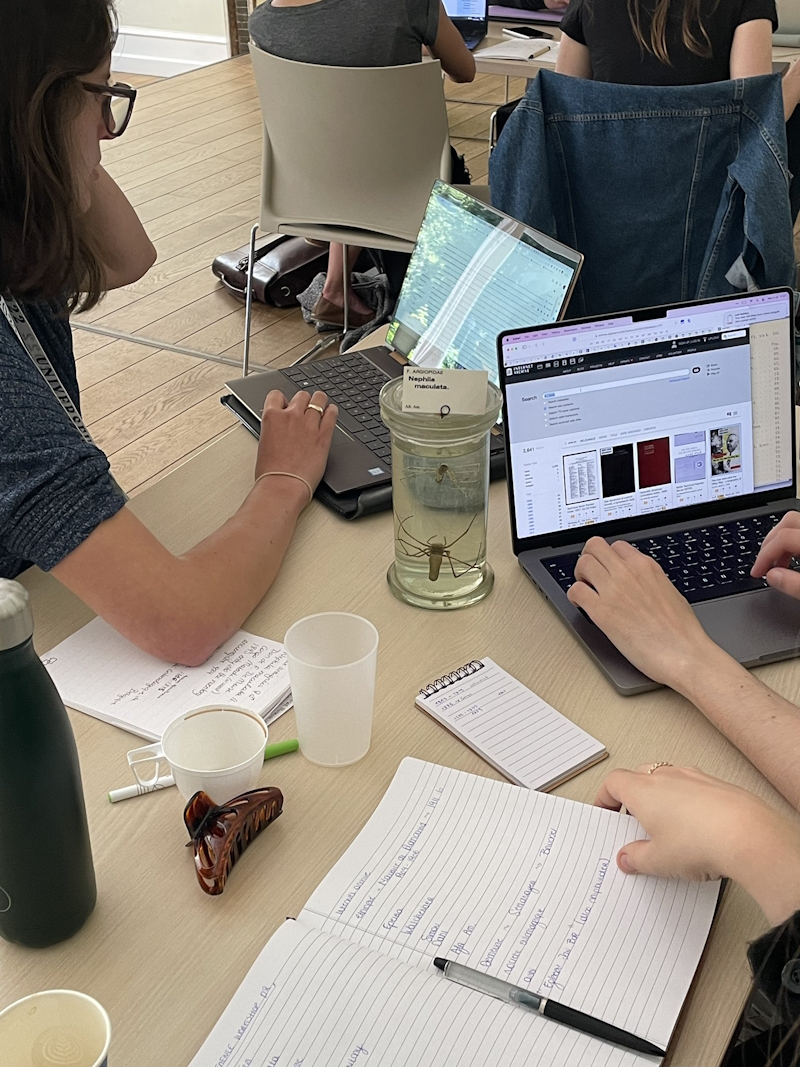 ‘University museums & collections: challenges of the past – responsibilities for today’: participation at the Universeum Pre-Conference Training Workshop ‘Decolonisation and restitution: the role of university museums in provenance research and its impact’ (July 2022, Belgium). Source: X/Twitter
‘University museums & collections: challenges of the past – responsibilities for today’: participation at the Universeum Pre-Conference Training Workshop ‘Decolonisation and restitution: the role of university museums in provenance research and its impact’ (July 2022, Belgium). Source: X/Twitter
This year the grant will also be supporting several delegates presenting at the Renaissance Society of America conference in Chicago and at the annual Business History Conference in Rhode Island, facilitating in-person networking opportunities as well as the presentation of new research. We recognise attendance at events in person as having continued significance, even when many conferences offer online attendance options or move away from physical meetings entirely.
One of our first awardees on the scheme back in 2018 recently told me of the chain of opportunities sparked by her Lisa Jardine Grant-funded trip to Copenhagen. Ivana Bičak, whose research project ‘Philosophia triumphans: the literary reception of seventeenth-century experimental philosophy’ took her to Copenhagen, recalls:
‘Yes, that trip to Copenhagen is one of my most memorable postdoc experiences. It enabled me to make connections with the Danish academia, which then led to an invitation to a conference at the Royal Danish Academy of Sciences and Letters. There, an American professor was so thrilled by my paper that he invited me to give a paper at Emory University in Atlanta, for which I received full funding. And just recently the University of Copenhagen asked me to peer review an article for a Danish journal. In a nutshell, the Royal Society grant is a tremendously good initiative which can lead to many wonderful things. I will always be grateful for the opportunity.’
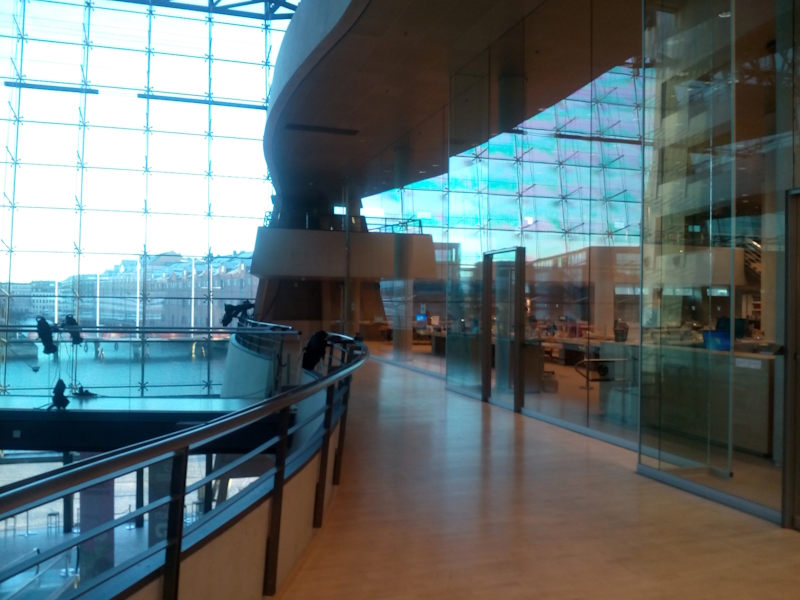 Royal Danish Library reading room. Image courtesy of Lisa Jardine Grant recipient Ivana Bičak, 2019
Royal Danish Library reading room. Image courtesy of Lisa Jardine Grant recipient Ivana Bičak, 2019
The scheme aims to foster the development of research networks between the Royal Society and a wide range of academics, as well as supporting advances in history of science research generally. The Royal Society has always been a wide-ranging organisation, at least in terms of embracing all areas of scientific study, and our records are diverse. To name just a few examples featured in past blogposts, researchers have received Lisa Jardine grants to attend the Royal Society for the purposes of investigating racialised knowledge in medical practice, the schoolroom education of early Fellows of the Royal Society, the ‘many faces of Mary Somerville’, and what gemstones can reveal about the Royal Society’s connections to the seventeenth-century global economy.
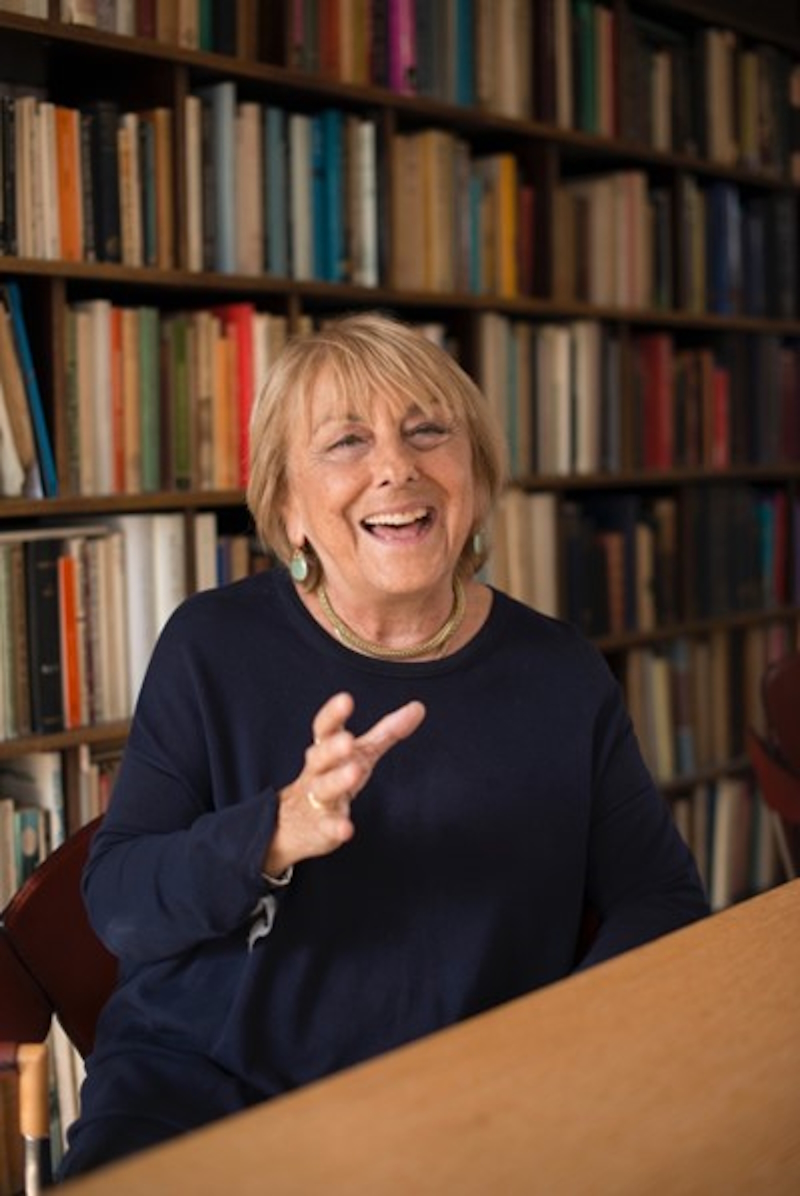 Image courtesy of Des Willie ©2014
Image courtesy of Des Willie ©2014
The Lisa Jardine Grant Scheme is named in memory of leading historian of science and champion of interdisciplinary studies Professor Lisa Jardine FRS, and is made possible by generous donations from her family, friends and colleagues, as well as various charitable trusts.
More past case studies of successful Lisa Jardine Grant-funded projects can be found on the scheme webpage along with full details on eligibility and how to apply. I hope you’ve been inspired, and I look forward to receiving grant applications from some of our blog readers in the near future!

